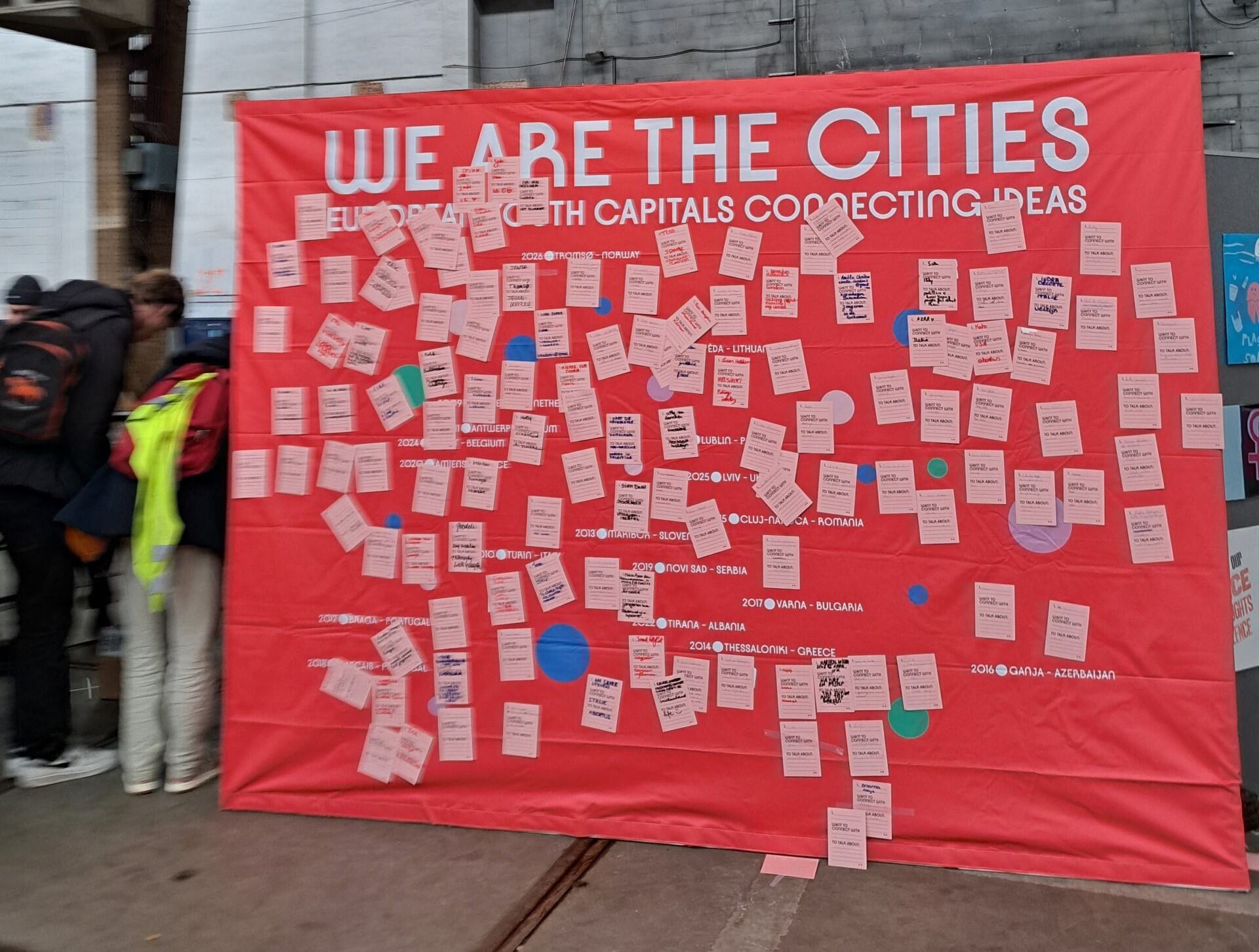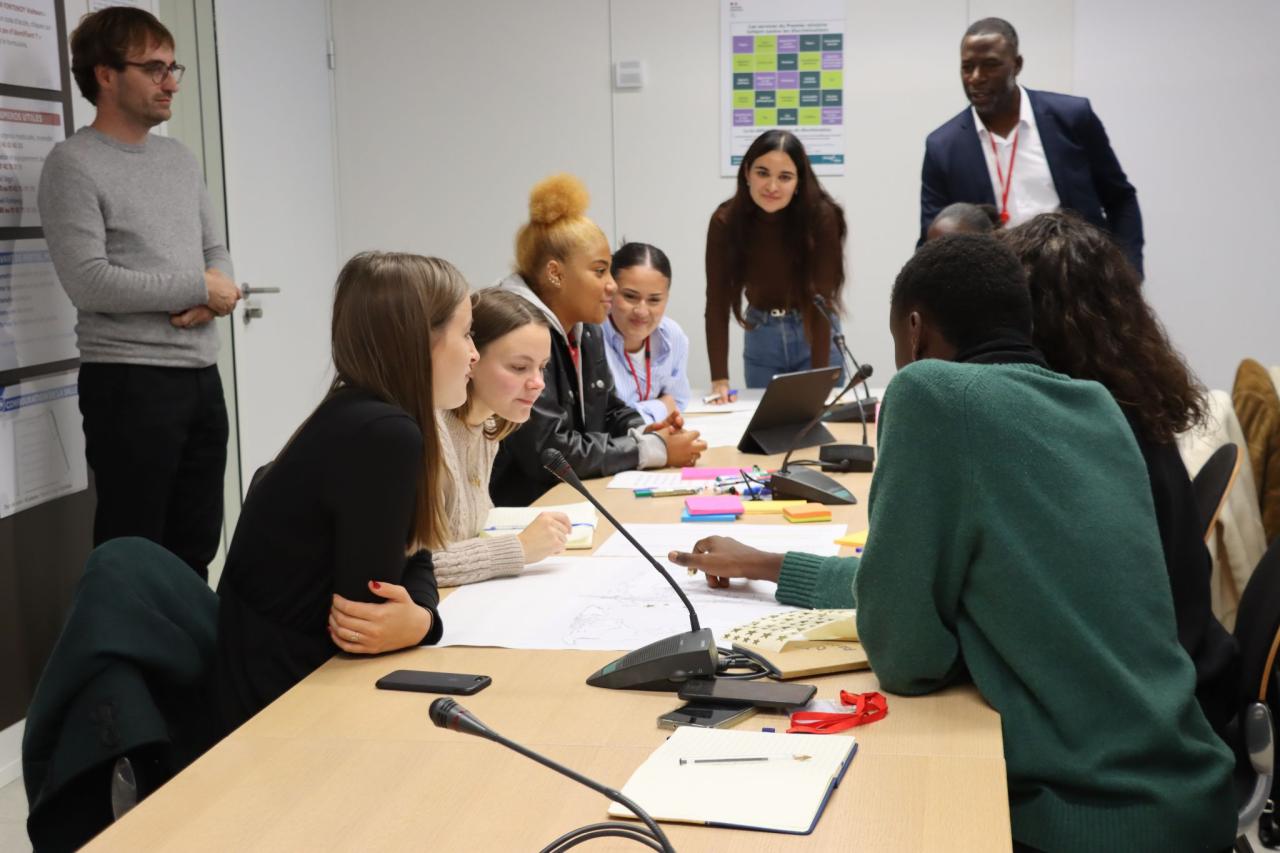Young people are at the forefront of urban development, tackling today’s most pressing challenges. How can we ensure today’s decisions genuinely benefit future generations? More importantly, how can these decisions reflect the priorities and values of those who will be most affected by them? The answer lies in actively engaging youth in urban planning and policymaking.
World Cities Day 2024 is dedicated to the theme “Youth Leading Climate and Local Action for Cities”, making it an ideal moment to showcase how URBACT is empowering the next generation of urban changemakers.
Calling on the voices of the future to shape the future
By 2030, an estimated 60% of urban residents will be under the age of 18. As cities grow and evolve, meaningfully including this large and increasingly influential population is crucial. Despite this, young people are often underrepresented or are not seen as a primary stakeholder group in these processes.
To address this gap, URBACT invited 22 young people, aged 15-25, to a workshop at the Agence nationale de la cohésion des territoires in Paris, where the URBACT Secretariat is based. The goal was twofold: to gather insights for the ongoing consultation and explore how URBACT could more effectively meet the needs of future citizens.
Source: ANCT
For context, as part of the Interreg programme, URBACT implements Cohesion Policy at the local level, enabling cooperation and knowledge exchange among European cities. The European Commission invited all European Territorial Cooperation Programmes to participate in the Interreg consultation for 2024, focusing on shaping future Cohesion Policy (post-2027).
Within this consultation, youth engagement has been a central focus for URBACT, recognising the long-term consequences of policies that will impact future generations. The outcomes of these discussions, underscoring the importance of young voices, will be submitted to the European Commission. One key question posed during the Paris workshop was, “What do you like about your city that could serve as a good example for others?” Participants highlighted the welcoming public spaces in central Paris, where people can gather, linger, and feel at home. They also underscored the importance of public transport and bicycle lanes, which enable them to be more mobile, independent, and empowered in their city. Additionally, participants expressed a need for more initiatives focused on public and social spaces, raising the critical issue of safety in urban areas. They called for education from an early age to reduce violence and aggression, fostering a more civic-minded society that respects shared spaces.
Participants also showed great enthusiasm for travel and its enriching potential on both an individual and community level. However, they acknowledged that travel is not accessible to all and discussed how organised trips, such as those through schools, can make a significant difference and leave a lasting impact.
Another initiative that saw young people contribute to URBACT’s consultation took place in Ghent (BE), which was awarded the title of European Youth Capital for 2024. The city created a velcro wall where participants placed cards indicating which previous European Youth Capital they would like to visit and what they hoped to learn from those cities. This idea of visiting other cities and exchanging practices provided an important foundation for discussions with young citizens about territorial cooperation and the benefits of city-to-city learning. The data collected was later shared with URBACT, further contributing to the ongoing consultation process.

Yet another workshop, EYE Brežice 2024, supported URBACT’s consultation by involving young people from Slovenia and neighbouring countries, aged between 15 and 30. Participants were invited to share their views, including their ideas for travel—specifically, which city they would like to visit, what they would find interesting to see, and what topics they would like to discuss with residents of that city. One key insight from the workshop was participants’ reflections on tourism and how cities can develop solutions to include local residents in decision-making processes and involve them in urban projects and development.
Get inspired by URBACT Good Practices involving young people across European cities
URBACT has identified and supported several Good Practices across Europe that place youth at the heart of urban development. Out of the newly selected 116 URBACT Good Practices, prioritising young people is a recurring theme. For example, cities like Cluj-Napoca (RO), Valongo (PT) and Cascais (PT) have implemented participatory budgeting initiatives involving young people. In Valongo, young people are invited to plan the investment of €250 000 of public funds.
Another example can be found in Zaragoza (ES), where the focus is on sustainable, active, and independent mobility for primary and secondary school students. The initiative, Stars Zaragoza Project, promotes cycling as a regular mode of transport, fostering sustainability while empowering young students with a sense of independence.
Looking ahead: youth continue to lead URBACT’s agenda
World Cities Day 2024 is an important moment to recognise the vital role of youth in shaping the future of European cities. URBACT is committed to building pathways for young people to lead in urban innovation, with each idea moving us closer to a brighter, more sustainable future.
Look out for insights from the 2024 consultation results, which will be published soon, and dive deeper into these inspiring Good Practices at the URBACT City Festival in Wrocław (PL) in 2025. Registration opens on 4 November 2024, make sure to secure your spot!


